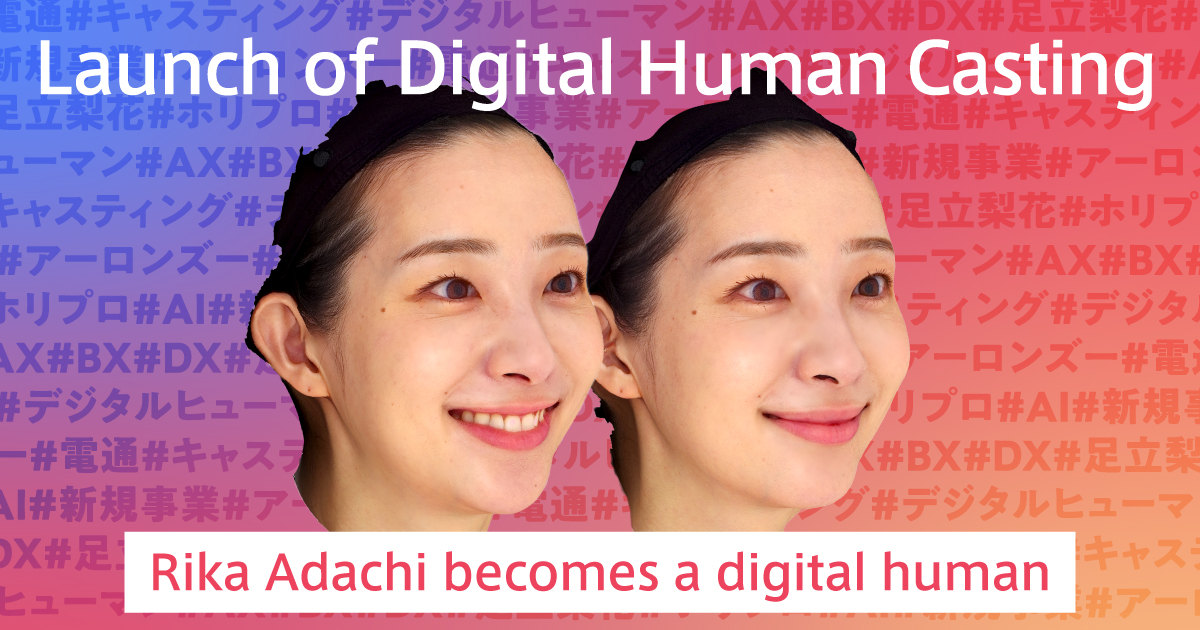
In line with recent rapid advances in generative AI technology, efforts are underway across a variety of industries to commercialize digital humans that look exactly like people and move autonomously.
There is a growing momentum to turn celebrities and other famous people into digital humans. The aim is to overcome the issues and limitations of conventional talent casting.
In the first project of a casting joint venture, Dentsu has partnered with HoriPro Inc., a major Japanese talent agency to create a digital human modeled on variety show talent and actress Rika Adachi.
In this article, the Dentsu Business Transformation (BX) Creative Center’s Aaron Zhu, who oversees this project, explains its background and approach. We also sought the impressions of Rika Adachi, who took part in the new challenge.
Digital Humans May Beat Casting Constraints
Talent agencies and production companies are home to many talented and special people who contribute to the growth of companies and organizations in a number of areas, including advertising. In addition, our casting business, which selects the talent best suited for the many needs of companies and society, has continued to provide value that is mutually beneficial to advertisers, talent agencies, and consumers by making full use of information, experience, networks, technology, and other resources.
In a sense, talent casting in Japan has reached a high level of maturity. Thanks to a wealth of experience and know-how, as well as the use of data, it is now possible to cast with a degree of accuracy that leads to positive results. At the same time, because the business is mature, it is becoming more difficult to achieve rapid growth and innovation.
Conventional casting methods are inevitably affected by time and travel constraints. As the schedules of popular talent fill up quickly, it is not always possible to meet all the needs of companies and society.
Moreover, although interest in Japanese content is growing globally, there are times when opportunities are missed. Despite the chance to expand overseas, talent often remain in Japan due to factors such as education and the language barrier.
For this reason, the use of digital humans has great potential to provide solutions and create new value.
Using digital humans allows highly topical and flexible communication, especially in the area of digital media, such as social media and video content, as well as in metaverse spaces. Although digital human technology has existed for some time, there have been issues concerning accuracy and flexibility. Thus, it has yet to reach the stage of practical application.
However, as we all know, great strides have been made in generative AI technology over the past few years. In using this technology, digital humans have advanced to the point where they can respond in real time and engage in free dialogue in a smoother, more natural way. As a result, their use is accelerating in areas such as advertising.
Venture to expand use of real talent
Dentsu Japan and its group companies in Japan have launched a joint venture with a major talent agency to cast digital humans.

As a first step, we created a digital human version of Rika Adachi, who is affiliated with the agency. This will allow us to expand her activities beyond the constraints of time and place, and take on new challenges in the digital and real worlds. We plan to propose and implement more effective marketing measures and casting projects for companies and organizations that want to use digital humans.
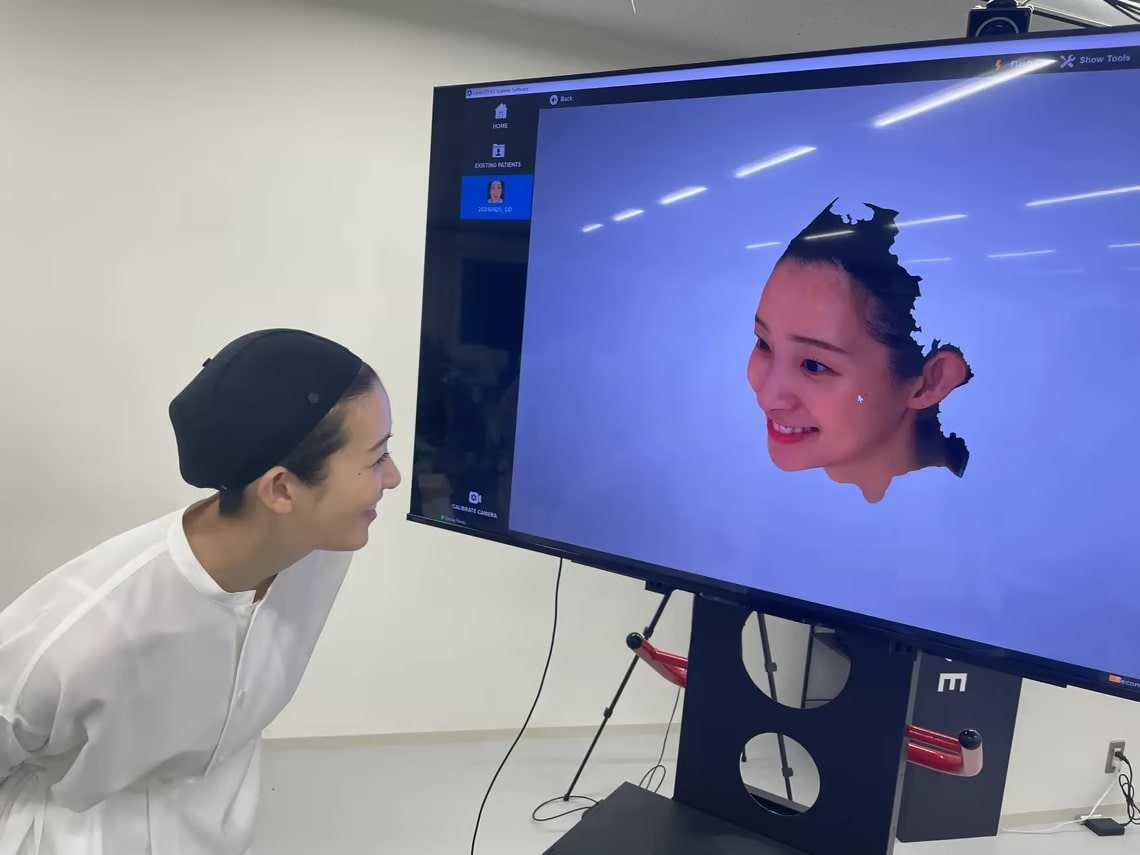
Just as an example, we aim to create models that support multiple languages by using generative AI. In addition, it will become possible to install digital signage at tourist destinations and have a digital human version of, for example, Rika provide guidance in multiple languages. It will also become easier to use a number of languages in commercials and other content.
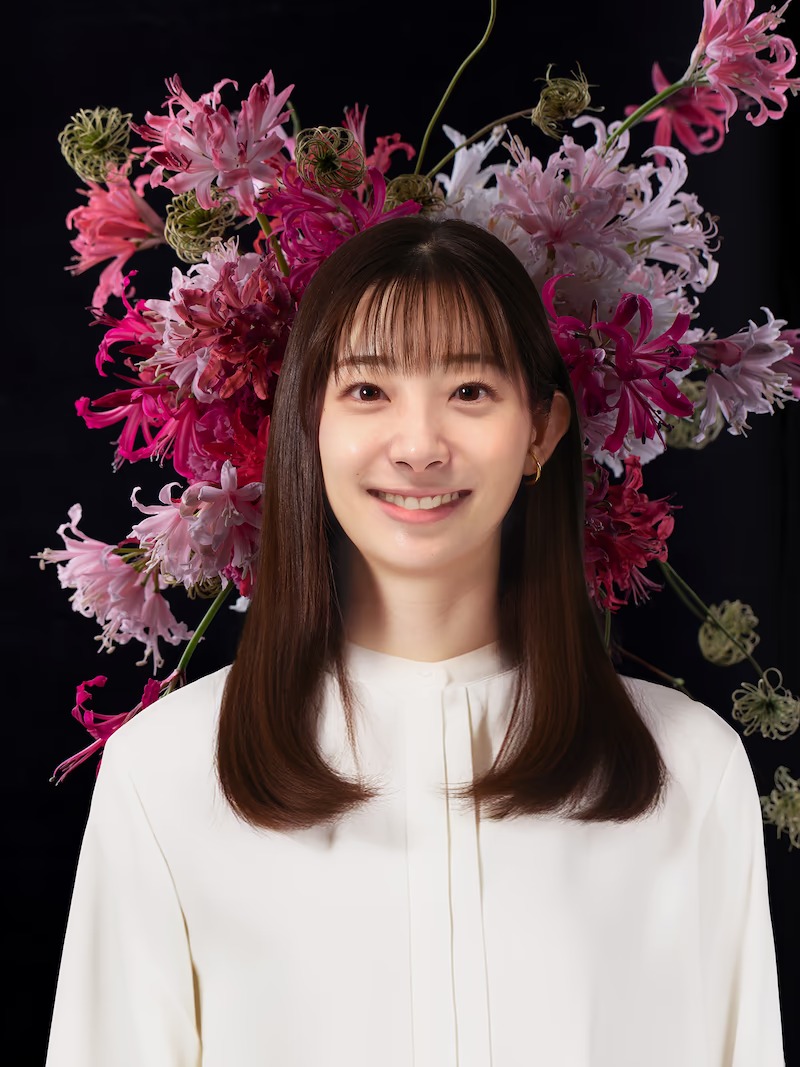
In the background of the digital human image are Diamond Lilies, which were chosen by a flower designer Masaru Akai to represent Rika Adachi’s digital human.
Digital Humans Allow People to Do Work Only We Can Do
Since the creation of digital humans presents new challenges for talent agencies and talent, how does Rika view the initiative? Aaron Zhu, who is overseeing the joint project, interviewed Rika immediately after the shoot.
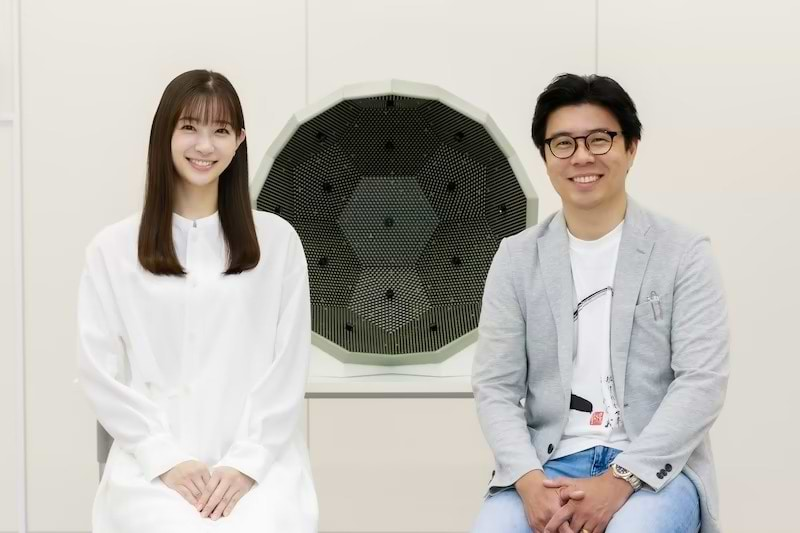
Aaron: How was it creating a digital human for the first time? Please share your honest impressions.
Rika: It was fresh and interesting. You photographed everything in great detail. I can understand closing and opening your eyes, smiling, and looking straight ahead. But you also took photos of the creases between my eyebrows, around my ears, and at the nape of my neck. I can’t wait to see how they’re used and how they turn out.
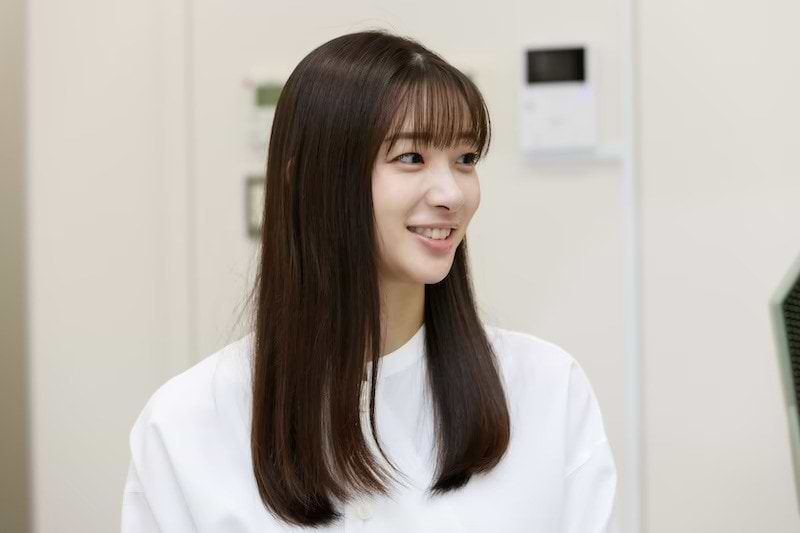
Aaron: An AI model that looks exactly like you is about to be born. How do you feel about that?
Rika: Well, I believe there are still many things that AI can’t do, and jobs that only humans can do. Yet, I also feel that there are some areas where AI is gaining ground. If we can use digital humans to save time, I wonder if we could spend more time doing work that only humans can do. Being more creative and providing value that can be experienced only in the real world would be a good thing for everyone.
Aaron: Is there anything you would like the digital human version of you to do?
Rika: There are a lot of people from overseas visiting Japan these days. When I observe these people, I notice that quite a few are looking at maps on their smartphones. There are still many people who get lost or don’t know where to go or what to do, so it would be great if my AI self could provide support in various languages.
In addition, there are lots of things in their everyday lives that even Japanese people don’t understand. For example, it would help if there were an AI model at the bank that could teach one how to fill in forms and follow procedures to suit one’s individual needs. For those who don’t understand the procedures, it would make the process smoother and reduce congestion, wouldn’t it? I would be happy if I could become someone who helps people in this kind of need.
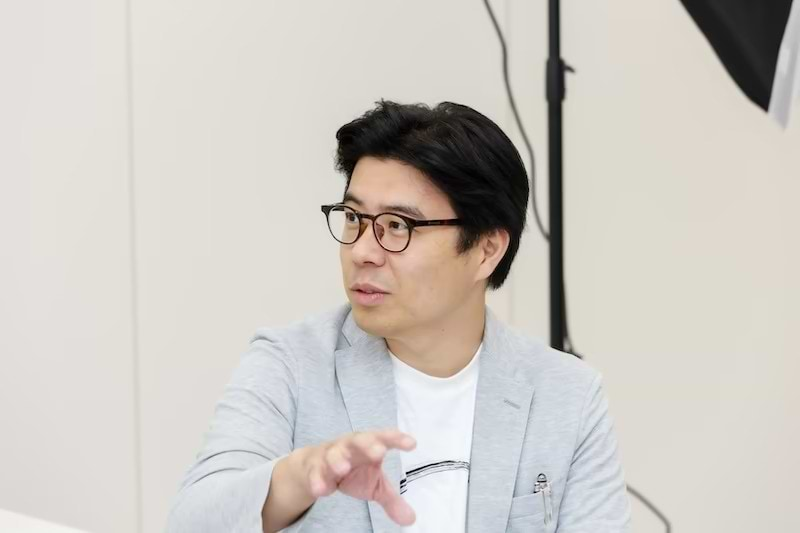
Aaron: I believe that, until now, most of your work has been in the real world: on TV and in magazines. But now that you have created a digital human, I am sure you will be doing more work in which you move and talk autonomously in the digital world. How do you view this foray into new territory?
Rika: There are certainly a lot of things to be anxious about if you’re trying something new and might fail. But, when you think that you could become a pioneer were you to achieve something that no one has done before, it’s very exciting. I might appear all over Japan, or even all over the world. That could be really interesting. At the same time, I have to work hard so that I don’t lose out to AI.
Aaron: It would be great if the real Rika and the AI Rika could build a relationship in which they can help each other grow. We will do our best to expand Rika activities, so please continue to support us.
We plan to use digital humans to improve talent management and increase production efficiency. This we will do by augmenting existing content using AI technology as we continue diversifying talent content.
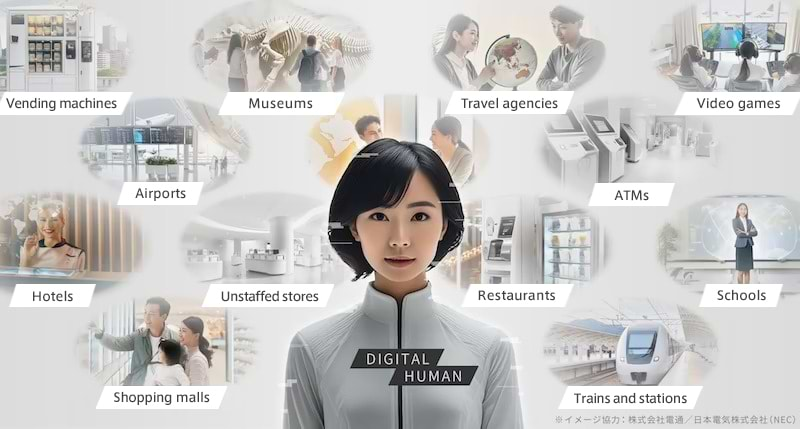
We encourage everyone with an interest in this project to please get in touch.
